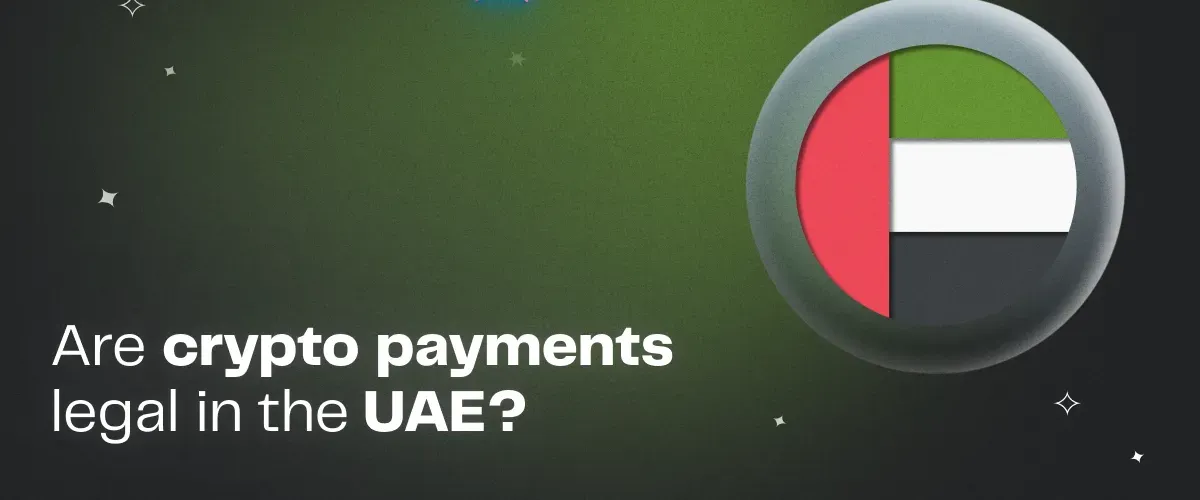Embracing Cryptocurrency Payments in the UAE
The United Arab Emirates (UAE) has been increasingly venturing into blockchain and cryptocurrency technologies over the past decade. With a cryptocurrency market capitalization exceeding $1 trillion, the UAE is positioning itself as a leader in crypto adoption. In contrast, many Western countries, including the U.S., are slower to establish effective regulations for cryptocurrency trading. This scenario creates a prime opportunity for progressive cities like Abu Dhabi and Dubai to develop a robust blockchain infrastructure.
- No restrictions on cryptocurrency operations in the UAE.
- No individual income taxes; corporate tax rates vary based on taxable income.
- Accepting crypto payments is streamlined with GOPayments, offering a variety of tools for businesses.
Accepting Crypto Payments in the UAE
Yes, UAE citizens and residents can easily send and accept cryptocurrency payments. The Central Bank of the UAE (CBUAE) initiated cryptocurrency regulations in 2017, mandating that all transactions involving digital assets be conducted through licensed exchanges and adhere to anti-money laundering regulations. While cryptocurrencies are not classified as legal tender, they are not illegal according to the CBUAE. The crypto community anticipates clearer regulations in 2023, which will further support crypto adoption.
The establishment of the Dubai Virtual Assets Regulatory Authority (VARA) under the Virtual Assets Law of 2022 reflects Dubai’s commitment to overseeing and regulating virtual currencies, NFTs, and other digital assets. This independent body aims to inspire investment and create an environment conducive to businesses involved in virtual assets.
Importantly, UAE residents enjoy the freedom to buy, sell, and invest in cryptocurrencies due to the regulatory framework that allows such activities. This positions Dubai and other emirates as ideal locations for crypto enthusiasts and investors.
Tax Implications on Crypto Assets in the UAE
The UAE is renowned for its business-friendly tax environment, imposing corporate taxes primarily on oil companies and foreign banks, while individuals are not subject to income tax. The corporate tax has specific rates, including a 9% levy on taxable income exceeding 375,000 AED, with 0% for income below that threshold.
Since September 2021, selected free trade zones in Dubai and Abu Dhabi have introduced tax exemptions for cryptocurrencies, covering all aspects from trading and staking to mining and NFTs. As a result, crypto-related gains are not taxed, making the UAE an attractive destination for both active traders and casual users of cryptocurrency.
How to Accept Crypto Payments in the UAE
To start accepting cryptocurrency payments for either personal or business purposes, it is essential to choose a credible crypto payment processing service. GOPayments offers an extensive range of user-friendly tools designed to facilitate crypto transactions:
- Donation Widgets:
Easily integrate with your website using a simple API key code snippet. - Donation Buttons:
User-friendly codes for inclusion in emails, blogs, or websites. - Donation Links:
Shareable links for social media and online platforms. - Plugins:
Ideal for online stores, integrating smoothly with content management systems (CMS) like WooCommerce and OpenCart. - Cryptocurrency API:
Allows integration of payment services into websites and mobile apps, with instant payment notifications (IPN). - Invoices:
Create customized invoices that simplify the payment process for customers. - Point of Sale (POS) Terminal:
Empower customers to utilize cryptocurrencies in physical stores with tools for transaction management and fast payments.
Starting Your Crypto Payment Journey
Launching your cryptocurrency payment system is straightforward with GOPayments:
- Visit the official GOPayments website to get started.
- Access the GOPayments dashboard and enter your cryptocurrency wallet address in the Payment settings.
- Generate an API key to access additional plugins and features.
- Create a Payment link to receive payments, choosing your pricing and payment options.
- Share the generated link with your customers for secure payments.
The UAE’s favorable environment for blockchain and cryptocurrencies, especially in tech-centric cities like Dubai and Abu Dhabi, positions it as a growing hub for the digital asset sector. As global regulations evolve, the UAE is advancing swiftly, fostering a clear and supportive framework for crypto adoption.
